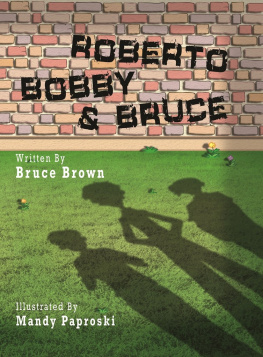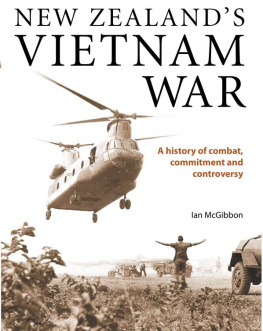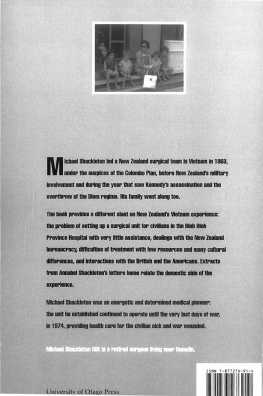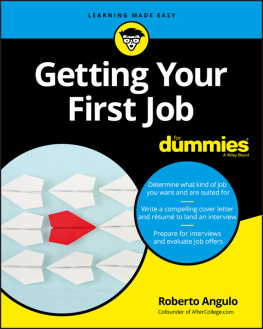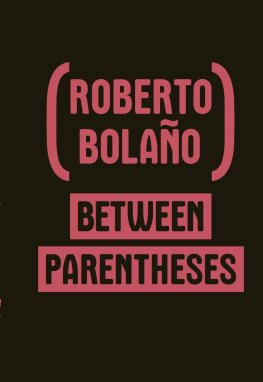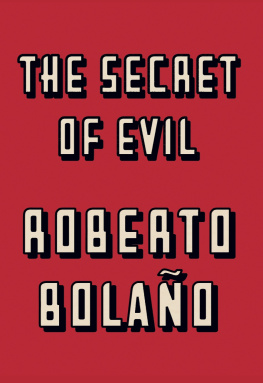Roberto Rabel - New Zealand and the Vietnam War
Here you can read online Roberto Rabel - New Zealand and the Vietnam War full text of the book (entire story) in english for free. Download pdf and epub, get meaning, cover and reviews about this ebook. year: 2005, publisher: Auckland University Press, genre: Politics. Description of the work, (preface) as well as reviews are available. Best literature library LitArk.com created for fans of good reading and offers a wide selection of genres:
Romance novel
Science fiction
Adventure
Detective
Science
History
Home and family
Prose
Art
Politics
Computer
Non-fiction
Religion
Business
Children
Humor
Choose a favorite category and find really read worthwhile books. Enjoy immersion in the world of imagination, feel the emotions of the characters or learn something new for yourself, make an fascinating discovery.

- Book:New Zealand and the Vietnam War
- Author:
- Publisher:Auckland University Press
- Genre:
- Year:2005
- Rating:4 / 5
- Favourites:Add to favourites
- Your mark:
- 80
- 1
- 2
- 3
- 4
- 5
New Zealand and the Vietnam War: summary, description and annotation
We offer to read an annotation, description, summary or preface (depends on what the author of the book "New Zealand and the Vietnam War" wrote himself). If you haven't found the necessary information about the book — write in the comments, we will try to find it.
New Zealand and the Vietnam War — read online for free the complete book (whole text) full work
Below is the text of the book, divided by pages. System saving the place of the last page read, allows you to conveniently read the book "New Zealand and the Vietnam War" online for free, without having to search again every time where you left off. Put a bookmark, and you can go to the page where you finished reading at any time.
Font size:
Interval:
Bookmark:
New Zealand
and the Vietnam War
and the Vietnam War
Politics and Diplomacy
Roberto Rabel

Auckland University Press
University of Auckland
Private Bag 92019
Auckland 1142
New Zealand
www.press.auckland.ac.nz
Crown Copyright, 2005
This ebook edition 2013
eISBN 978 1 86940 692 9
Published in association with the Ministry for Culture and Heritage
This book is copyright. Apart from fair dealing for the purpose of private study, research, criticism or review, as permitted under the Copyright Act, no part may be reproduced by any process without prior permission of the publisher.
The Vietnam War was New Zealands most prolonged, most reluctantly entered into and most politically divisive military experience of the twentieth century. It had a decisive impact on subsequent policy-making and public debate about national security, even though the countrys troop commitment was minimal. This book examines the diplomatic, political and social dimensions of New Zealands participation in the conflict. It seeks to explain how and why New Zealand was drawn into the Vietnam War, and to assess the diplomatic and domestic consequences of that experience.
This volume is one of a series of works covering New Zealands involvement in international conflicts since the Second World War. It was commissioned by the Historical Branch of the New Zealand Department of Internal Affairs, which has since become the History Group in the Ministry for Culture and Heritage. The book is an official history in the sense that the state has sponsored its preparation and facilitated access to a wide range of official records, most of which are now in the public domain. I have not been subject to censorship of any sort and the arguments advanced are strictly my own.
This book is intended to serve primarily as a reasonably comprehensive and authoritative narrative history. It relies heavily on research in the New Zealand governments voluminous files on this subject, supplemented by more selective use of the records of other governments, newspapers, materials pertaining to the anti-war movement, private papers and some oral history interviews. The book does not offer an exhaustive treatment of all diplomatic, political and social developments associated with New Zealands involvement in the Vietnam War. Significant international developments such as the Korean War, Indonesias Confrontation policy toward Malaysia and Britains withdrawal from east of Suez all affected policy-making on Vietnam and receive attention in that context, but their wider implications for New Zealands regional security policy cannot be fully elaborated. On the domestic front, the book analyses the overall character and impact of the anti-war movement that arose during the Vietnam War, but I have not attempted to reconstruct the detailed histories of the numerous so-called Committees on Vietnam and analogous groups, with their diverse and distinctive local features. Similarly, I have been able to give only passing attention to the relationship between opposition to the Vietnam War and other contemporary protest causes, such as the womens, anti-apartheid and anti-nuclear movements. Nor does the book discuss all facets of New Zealand media coverage of the war. These and other specific subjects related to the impact of the Vietnam War on New Zealand are beyond the scope of a general history. Also explicitly excluded is the combat experience of the New Zealand military personnel (fewer than 4000 over the course of the war) who served in Vietnam, which will be the subject of a separate volume by another historian.
Inevitably, when presenting conclusions about such a contentious conflict, no historian can hope to meet with universal agreement. I have tried to be balanced in setting out the competing sides in the domestic debate about foreign policy that was triggered by this war. Readers will have to decide for themselves if my interpretations of the significance for New Zealand of the Vietnam War are persuasive.
This book is organised around two overarching arguments, one principally diplomatic, the other principally domestic. On the diplomatic front, I have concluded that New Zealand was reluctantly drawn into the Vietnam conflict for Cold War reasons relating to the perceived threat of communist expansionism in Southeast Asia. It committed military forces there from 1964 to 1972 largely to demonstrate alliance solidarity with the United States and, to a lesser extent, with Australia. Once committed, New Zealand pursued a relatively effective diplomatic strategy, which differed in crucial respects from those of its more powerful American and Australian allies. As a perceptive diplomatic officer commented in 1970, New Zealand was the most dovish of the hawks. My second line of argument concerns the domestic debate about the Vietnam conflict, which precipitated the splintering of an earlier bipartisan consensus on foreign policy and brought to public prominence competing views on what constituted an independent foreign policy. This book will suggest that Keith Holyoakes National government remained essentially impervious to domestic criticisms of military involvement in Vietnam. But many other New Zealanders, including a generation of future political leaders, came to accept those criticisms. Indeed, the nationalist criticism of official foreign policy first popularised by domestic opponents of the Vietnam War arguably attained its greatest influence during the later anti-nuclear dispute between New Zealand and the United States, climaxing in the suspension of the ANZUS alliance in the 1980s.
For practical reasons, the book is organised chronologically, with most chapters alternating in developing the two major themes. Although, for the most part, the diplomatic and domestic stories unfolded independently, this book rests on the assumption that there was an underlying interplay between the two dimensions of involvement in the conflict.
I have been assisted in many ways by individuals and institutions without whose generous support the completion of this book would not have been possible.
I owe thanks first to the New Zealand government for appointing me to write this history and for funding a year of research in Wellington, where I was based in the Historical Branch of the Department of Internal Affairs. This provided a uniquely convivial and collegial environment in which to sift through thousands of pages of official documents and other manuscript sources housed in the capital. As a university-based historian (and then administrator) with teaching and other commitments, it took many more years to absorb the significance of those documents and to complete supplementary research, but that initial period of uninterrupted research was indispensable. The Branch has since evolved into the History Group of the Ministry for Culture and Heritage, which continued to provide institutional support and supervision during the final stages of the project.
I am grateful to my own academic home institution, the University of Otago, which granted me a years leave without pay to carry out initial research and provided sabbatical leave and research grants. I would also like to thank successive heads of the Universitys History Department for their support and encouragement, especially Erik Olssen, who was an inspirational mentor. I am similarly indebted to other former colleagues, especially Tom Brooking, Barbara Brookes and Ann Trotter.
Like all diplomatic historians, my work has been eased by the knowledgeable assistance of librarians and archivists at numerous institutions. I must thank the many staff members who helped me in the following cities: in Wellington at the Alexander Turnbull Library, Archives New Zealand, the Ministry of Foreign Affairs and Trade and the Ministry of Defence; in Dunedin at the University of Otago and Hocken Libraries; in London at the Public Record Office; in Washington DC (and Suitland, Maryland) at the United States National Archives and the Library of Congress; in Boston, at the John F. Kennedy Library; in Austin at the Lyndon Baines Johnson Library; and in Princeton, at the Princeton University Library and the Seeley G. Mudd Manuscript Library.
Next pageFont size:
Interval:
Bookmark:
Similar books «New Zealand and the Vietnam War»
Look at similar books to New Zealand and the Vietnam War. We have selected literature similar in name and meaning in the hope of providing readers with more options to find new, interesting, not yet read works.
Discussion, reviews of the book New Zealand and the Vietnam War and just readers' own opinions. Leave your comments, write what you think about the work, its meaning or the main characters. Specify what exactly you liked and what you didn't like, and why you think so.

